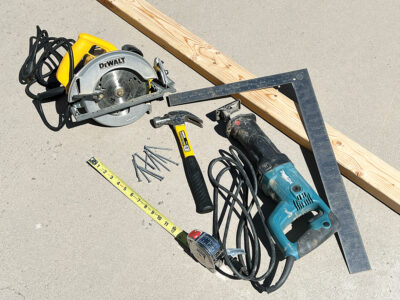Tim Harty, The Business Times

A new law aimed at reducing litigation exposure that Colorado building contractors face when building multi-family homes such as condominiums is being viewed primarily as a step in the right direction by Grand Valley stakeholders. But they don’t see it being an affordable-housing panacea.
Colorado Gov. Jared Polis signed HB25-1272 into law on May 12 after it received resounding bipartisan support, passing 61-3 in the Colorado House and 31-4 in the Senate.
Now called The Colorado American Dream Act, the new law had strong support from the likes of the Colorado Association of Realtors, which heralded it on a fact sheet as introducing “fair and balanced reforms to construction litigation, ensuring that high-quality homes are built, problems are fixed and excessive costs that deter development can be reined in.”
For the Colorado General Assembly’s summarization of the law, see the Info Box accompanying this story on Page 9. To see the whole bill, go online to leg.colorado.gov/bills/hb25-1272.
At its core, the new law addresses lawsuits, especially the class-action variety on multi-family homes, where homeowners associations come into play. That litigation exposure and the cost to insure against it often are the first things a building contractor will cite for reasons it doesn’t build condominiums in Colorado.
Case in point, FCI Constructors President and CEO Shane Haas said multi-family home construction is less than 5 percent of the Grand Junction-based company’s projects, adding, “We steer clear of them because of the litigation exposure.”
INCENTIVIZED BY WARRANTIES

The key way to reduce exposure is the law’s provision that a builder voluntarily can provide the home buyer a written warranty that: covers building defects up to six years for major structural defects; two years for plumbing, electrical and heating and cooling systems; and one year for workmanship and materials.
Then, in the event of a building defect, the homeowner, instead of suing, must first give the builder the chance to do the repair. If that doesn’t fix the problem, then the homeowner can sue the builder, and there is a two-year statute of limitation for the homeowner to be able to file suit.
As the principal of Schwenke Solutions and a governmental affairs consultant for the Grand Junction Area Realtors Association and the Housing and Building Association of Western Colorado, Diane Schwenke views the new law from the perspective of real estate agents and builders.
She said the intent of the legislation is to basically take away some of the risk of litigation that has been on the rise for attached homes, townhomes and condominiums, because the litigation has resulted in some enormous insurance claims. In turn the number of insurance providers for such homes have decreased, and without insurance or with cost-prohibitive insurance, many builders will seek projects other than multi-family.
“The intent of the bill,” she said, “was to basically try and balance out the rights of these homeowners to, if there are defects, have them fixed, and yet at the same time not be so punitive as to just discourage the development community from even building these types of houses.”
GOOD START, BUT MORE NEEDED
Asked if the law will make a difference, Schwenke said it’s “wait and see,” but she ultimately believes it doesn’t do enough.

“I think it was a good attempt,” she said. “I think the opt-in provision – contractors do have a choice whether or not they want to opt into basically a proactive defense – that was good. I think raising the minimum number required for a class action with regard to attached housing, that was good.”
Schwenke said she has talked with builders who are hopeful, or, “I wanna say they’re hopeful, but they’re not jumping up and down for joy, I guess that’s the way to say it. … There’s hopefulness, and there’s skepticism around the bill at this point, so I guess we’ll just have to wait and see.”
Colorado House District 54 Rep. Matt Soper voted for the bill, and similar to Schwenke, he likes that the warranty aspect is voluntary.
Also, like Schwenke, Soper thinks more still needs to be done.

“This is a step in the right direction and maybe even a leap in the right direction, but certainly if folks are calling this a silver bullet or the end-all to our housing crisis in Colorado, that is completely inaccurate,” he said. “This is moving forward towards trying to have more multifamily units come online.”
Grand Junction’s Randy Whetzell, chairman of the Colorado Association of Home Builders’ executive committee, is also of the mind more needs to be done to benefit builders to ultimately bring about more multi-family building projects.
However, he accepts the new law as a respectable, balanced starting point.
“I feel like it ended up in a pretty good place or the best that we could hope for, just given the litigious environment we’re in today,” Whetzell said. “It does offer good homeowner protections, but it’s not so overreaching that frankly a builder doesn’t wanna do business in Colorado anymore. I think it landed in a satisfactory spot.
“That was kind of the best I think we could hope for. With this evolution of it, the hope would be that we’ve addressed what those overall concerns are and kept it – I don’t wanna say soft, but maybe benign enough, because it is scary for a home builder to either go into a subdivision that they’re the primary builder or going into a big multifamily project, because there is so much exposure.
“I think this kept enough teeth out of it that it’s not gonna run guys off and discourage them from doing those kind of projects, but I think there’s enough teeth in it that it will discourage the guys that would be bad actors potentially in building a project.”
INSURANCE WILL BE TELL-TALE
Reducing the litigation exposure only makes a difference for builders if it allows them to get insurance that is more affordable for multi-family, new-construction projects or to get insurance at all.
Grand Junction-based BOA Builders has been in business since 1982, and Charlie Gechter, who co-owns the company with his wife, Wendi, has seen firsthand how the insurance market has tightened for building multi-home developments.

“So many insurance companies left or will refuse to write a policy for a (general contractor) doing condos in Colorado,” Gechter said. “We haven’t necessarily had any problems with single-family homes or townhouses, but it’s getting worse and worse.”
If the new law doesn’t affect changes in the availability and cost of insurance, Gechter said it won’t lead to the new, affordable housing that the law’s supporters envision.
“It ultimately comes down to: If a general contractor like myself can’t get insurance, because there’s no insurance companies that will insure in Colorado, then it doesn’t matter. I still can’t build them,” he said.
Addressing the same issue, Schwenke said she’s not sure the new law is enough for the insurance industry to re-enter the market.
“We’re not sure if it’s gonna be enough to encourage home builders to actually go back into building townhomes in this state like they did 20 years ago,” she said.
Whetzell added, “The insurance is a really big piece” of what builders need in order to proceed with multi-family developments.
“There are a lot of insurance companies that just will not insure guys if they’re doing that kind of project, so it’s getting fewer and farther between, which companies that you can get to insure you,” he said. “And if they are finding them, it’s really, really expensive. So, when we’re talking about housing affordability or housing attainability … all that stuff feeds into that.”
If more affordable insurance is required to get builders to take on multi-family homes again, then there’s an insurance conundrum, because insurance carriers will want to see claim frequency and claim payouts trend downward before they relent.
If neither side has incentive to act, there will be no action.
Matt Borg, owner of MB Insurance, 573 W. Crete Circle, Unit 205, in Grand Junction, said it’s difficult to offer thoughts on the new law, because “everything at this point is subjective,” and “what I would say is: It’s way too early to tell.”
And if insurance carriers do eventually act, he said, it will take time, more likely measured in years than months.
“There’s nothing that’s going to change overnight,” Borg said.
BACK TO THE LEGISLATURE?
If the Colorado American Dream Act doesn’t make a difference, perhaps the Colorado Legislature will need to tackle the issue again.
“I would expect that if this does not move the needle, we’ll know before the next (legislative) session begins,” Schwenke said. “We will see that there are not the kinds of projects in the pipeline that we had hoped to see to start to address our middle-house, our starter-home markets.
“If that is the case, then I think it is imperative that the parties come together and take another run at it. You know, this is the sausage being made, bring in the stakeholders, bring in the contractors, bring in the representatives for HOA and homeowner groups, and sit down around the table and really talk through some of what’s still holding us back and how can it be changed.”
Getting such talks to result in more substantial reform won’t be easy and perhaps isn’t possible, period, according to Soper.
He said the reason it’s extremely difficult to cut off class-action lawsuits against builders of multi-family homes is because Colorado has a really strong homeowners association lobby.
“It’s the HOAs that will act as a class when suing a general contractor, or subs for that matter,” Soper said.
So, a strong HOA lobby and a strong builders lobby don’t bode well for enacting sweeping changes for affordable multi-family developments.
“As long as we have these interests that have deep pockets, and they have a strong desire to protect their own turf, we’re gonna struggle to move beyond (small) steps in reform,” Soper said. “We can’t ever have a major, major reform, because these are big players in the policy arena, and they will work hard to push back on anything the legislature is attempting to do to where we can only have incremental change.”
Colorado American Dream Act Info
The Colorado General Assembly summarized HB25-1272, the Construction Defects & Middle Market Housing bill, which was signed into law May 12, with the following:
For construction of multifamily, attached housing of 2 or more units, the bill creates the multifamily construction incentive program. A builder may choose to participate in the program by:
- Providing a warranty that covers any defect and damage at no cost to the homeowner for specified periods;
- Having a third-party inspection performed on the property; and
- Recording a notice of election to participate in the program in the chain of title in the real property records.
For construction defects claims brought for the construction of housing for which the builder is a participant in the program, the bill:
- Requires a claimant to file a certificate of review with the complaint, if the complaint is against an architect or engineer;
- Limits actions to claims that have resulted in: Damage that substantially affects the functionality of a system or the safety of real or personal property, other than a condition that has not caused any substantial physical change; actual loss of the use of real or personal property; actual bodily injury or wrongful death; an unreasonable reduction in the capability of, or an actual failure of, a building component to perform an intended function or purpose; or an unreasonable risk of bodily injury or death to, or a threat to the life, health, or safety of, the occupants of the residential property;
- Establishes the statute of limitations at 8 years after the substantial completion of the improvement or deficiency or 6 years if the construction professional has provided a written warranty (professionals other than architects and engineers) or performed with reasonable care (architects and engineers); and
- Requires that a construction professional must send or deliver to the claimant an offer to settle the claim or a written response that identifies the standards that apply to the claim and explains why the defect does not require repair.
For all construction defect claims, the bill:
- Establishes a claimant’s duty to mitigate an alleged construction defect and specifies how a claimant may satisfy this duty and the consequences to a claimant that fails to satisfy this duty;
- Requires a construction professional who is the defendant in a construction defects action to submit specified information to the claimant;
- Prohibits an insurer from cancelling or denying a liability insurance policy issued to a construction professional based on the construction professional’s offer to repair or settle a construction defect claim;
- Tolls the statute of limitations or repose during a claimant’s mitigation of an alleged construction defect;
- Increases the amount of owners an executive board of a unit owners’ association (executive board) must obtain approval from before initiating a construction defect claim on behalf of the owners from a majority to 65 percent; and
- Requires an executive board that is successful in a construction defect claim to first use monetary damages received as a result of the claim to repair the construction defect.
The bill requires a local government to establish a fast-track approval process for an application for for-sale, multifamily condominium projects in order to qualify for assistance from the state affordable housing fund.
NOTE: To read the entire bill, go to leg.colorado.gov/bills/hb25-1272

